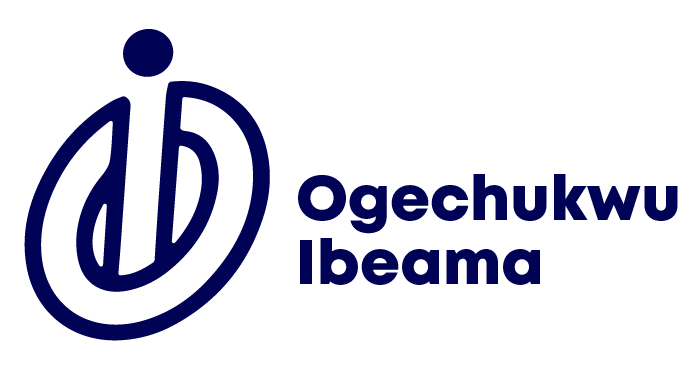
AIMPACT™ Performance & Transformation Framework
Artificial Intelligence Marketing Performance & Accountability Transformation
AIMPACT™
Performance & Transformation Framework
Created by Ogechukwu Ibeama, Product Marketing & AI Strategy Expert
Fill this form to begin the diagnostic self-assessment


Introduction to the AIMPACT™ Framework
In the modern marketing landscape, the challenge is no longer just creativity – it’s clarity, accountability, and AI alignment. Despite billions spent on marketing automation, analytics tools, and AI systems, organizations still face:
- Fragmented customer insights across platforms
- Misaligned AI investments that fail to deliver measurable ROI
- Ethical blind spots in digital advertising and personalization
- Unclear sustainability metrics for AI-driven campaigns
- Diminished consumer trust due to unverified or biased AI outputs
According to McKinsey (2025), fewer than 22% of enterprises effectively measure ROI from AI-powered marketing, and over 60% report “ethical or transparency concerns” in campaign execution.
Without a unified accountability model, businesses risk brand erosion, regulatory scrutiny, and wasted marketing budgets.
Introducing the AIMPACT™ Framework
Drawing from his leadership at Microsoft and his scholarly work on Green AI, Digital Advertising, and Sustainable Consumer Behavior, Ogechukwu Ibeama developed AIMPACT™– a proprietary AI-driven marketing transformation framework designed to unify performance, ethics, and sustainability into one measurable system.
AIMPACT™ empowers organizations to:
- Assess and quantify AI marketing readiness across teams and technologies
- Map AI initiatives to measurable business and ethical outcomes
- Integrate sustainability and fairness checks into every AI-driven campaign
- Predict performance and optimize real-time ROI across digital channels
- Build continuous accountability and learning loops to sustain long-term impact
What is AIMPACT™?
AIMPACT™ (Artificial Intelligence Marketing Performance and Accountability Transformation)
Is a five-pillar system that helps organizations align their AI-powered marketing strategies with measurable performance, ethical integrity, and sustainable growth.
Designed to be modular, cross-platform, and enterprise-ready, AIMPACT™ functions as both a strategic decision-support system and a diagnostic maturity framework that empowers marketing, analytics, and leadership teams to drive accountable AI innovation.
17 years of experience helping people for best solutions
The Five Strategic Pillars of AIMPACT™
AIM – AI Readiness and Integration Mapping
Assesses the enterprise’s current AI maturity, data infrastructure, and cultural readiness for AI adoption
- Measures capability gaps in data governance and technical enablement.
- Introduces the AI Marketing Readiness Index (AIMRI™) for quantifying organizational maturity.
- Guides AI investment decisions to ensure alignment with measurable goals.
Impact: Helps organizations reduce AI deployment redundancy and accelerate adoption by up to 25%.
VALUE – Value Engineering & Strategic Alignment
Ensures that every AI initiative directly supports business outcomes such as customer retention, conversion uplift, and brand reputation.
- Uses the AI-to-Value Mapping System (A2VM™) to align strategy and performance.
- Translates data insights into actionable marketing levers tied to key KPIs.
Impact: Increases marketing ROI by 20–30% through precision targeting and performance optimization.
ETHIC – Ethical AI and Responsible Modeling
Incorporates Tammy’s pioneering research in Green AI to ensure fairness, inclusion, and environmental responsibility in AI marketing systems.
- Introduces the Sustainability Intelligence Module (SIM™) to monitor bias, fairness, and carbon footprint.
- Ensures campaigns are inclusive, transparent, and compliant with global AI ethics standards.
Impact: Builds brand trust and reduces the digital carbon footprint by up to 18%.
PREDICT – Performance Analytics & Value Forecasting
Leverages AI-based predictive modeling to optimize campaign outcomes before deployment.
- Uses the Marketing Intelligence Multiplier (MIM™) to evaluate and forecast ROI across channels.
- Empowers leaders to test scenarios, predict engagement, and fine-tune creative and spend decisions.
Impact: Enhances predictive accuracy by 20% and boosts efficiency in ad spend allocation by 15–25%.
CALIBRATE – Continuous Learning & Accountability Loop
Implements an adaptive Feedback Learning Loop (FLL™) that continuously measures, refines, and realigns AI strategies with changing consumer and sustainability trends.
- Creates a self-learning ecosystem that evolves through each campaign cycle.
- Integrates insights into future initiatives, ensuring perpetual optimization.
Impact: Builds a resilient, continuously improving marketing intelligence infrastructure that sustains competitive advantage.
Use Cases and Impact Scenarios
Technology Enterprises
- Accelerate AI-driven go-to-market readiness by 25%.
- Improve campaign forecasting accuracy through continuous learning loops.
- Drive sustainable growth using ethics-aligned AI adoption models.
Consumer Brands & Retailers
- Achieve 30% higher customer engagement via personalized, bias-free AI campaigns.
- Monitor and reduce digital emissions from ad operations.
- Strengthen brand trust and customer retention through transparent AI usage.
Consulting & Marketing Agencies
- Integrate AIMPACT™ into client advisory workflows for strategic AI performance audits.
- Deliver data-backed sustainability reports to enterprise clients.
- Improve client ROI metrics and brand reputation across global markets.
Educational & Research Institutions
- Use AIMPACT™ as a case study for responsible AI education.
- Train marketing professionals on ethical AI design and impact modeling.
Get in touch
withme
LOCATION :
Based in Denver, CO
© 2025 Company. All rights reserved. AIMPACT™ by Ogechukwu Ibeama